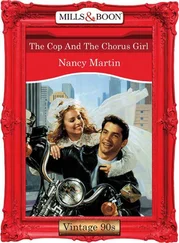Disher looked around the room. The bed was made, but the comforter was wrinkled and pillows were bunched up against the headboard as a backrest. The TV remote was on the floor beside the bed. Braddock was watching TV when his killer arrived, which meant the killer wasn’t lying in wait for him, which meant the killer was invited in, which meant it was someone Braddock knew.
The dining table was tipped over. There was a broken bottle of scotch and the shards of two broken glasses on the floor. Disher was surprised the doctor wasn’t lapping up the puddle like a thirsty dog.
“Cause of death?” Disher asked.
“Strangulation,” Hetzer said. “But he took a beating sometime before that. His nose is broken and there’s a bruise on his chest.”
He turned the body over so Disher and Lansdale could see Braddock’s broken nose, which was Stottlemeyer’s handiwork, and the red ligature marks around his neck, which were somebody else’s.
“You might want to check between Braddock’s teeth for traces of the comforter,” Disher told Dr. Hetzer.
“You think that Braddock liked to chew his bedsheets?” Lansdale said.
“I think Braddock knocked his killer back into the table as he was being strangled. Then the killer pushed Braddock facedown into the bed, put all his weight on Braddock’s back, and added smothering to his murderous repertoire.”
Dr. Hetzer nodded. “Judging by the position of the body, I’d say you’re probably right.”
“I didn’t get this badge out of a box of Cap’n Crunch, Doc,” Disher said. “When was he killed?”
“I’m guessing midnight,” Hetzer said, “Give or take an hour or two.”
“Can’t you be more specific?”
“I wish I could, but the AC was turned on full blast. It was like a meat locker when we got here.”
“Someone was trying to make it difficult for us to pin down exactly when the murder occurred,” Disher said. “We’re dealing with a pro. What was Braddock strangled with?”
“I’d say a belt, a rolled-up towel, or the sash of a bathrobe.”
Disher turned to Lansdale. “Make sure the forensic boys bag anything in this room that could have been used to strangle somebody. And talk to the people in the adjoining rooms, upstairs and downstairs, too. Maybe they heard something. I also want those glass shards tested for prints ASAP. I want to know who he was drinking with.”
“What are you going to be doing?” Lansdale asked.
“The heavy thinking,” Disher said. “You bring me the pieces and I’ll put the puzzle together.”
Monk spent the day at his apartment working through the files that Nick Slade had sent over that morning. I tried to help as best I could, but since I’m not a detective genius, it basically meant being a sounding board as he sorted through the clues and then being a stenographer as he laid out the solutions to the mysteries.
Danielle came by late that afternoon with a file under her arm. When I saw the file, I involuntarily tensed up. But it wasn’t another case to add to the pile Monk was dealing with. It was her research into Bill Peschel, his daughter, Carol, and her husband, Phil.
Monk set aside his remaining cases for the moment to listen to what Danielle had dug up.
“Your instincts were right, Mr. Monk,” she said. “Carol and her husband are living a lie. They aren’t a prosperous, upper-middle-class family.”
“They’re communist sleeper agents who’ve infiltrated American society,” Monk said.
Danielle and I stared at him.
“You are aware that we are in the twenty-first century,” I said. “And that the Berlin Wall fell, the Soviet Union collapsed, and the Cold War is over?”
“Yes,” Monk said.
“That’s not it,” I said.
“How do you know?” he said.
“Because the Berlin Wall fell, the Soviet Union collapsed, and the Cold War is over.”
“Okay,” Monk said. “They’re wanted fugitives.”
Danielle and I stared at him.
“They’re brother and sister,” Monk said.
Danielle and I stared at him.
“They’re illegal aliens,” Monk said.
“Have you been possessed by Randy Disher?” I asked.
“Why do you say that?” Monk replied.
“They’re broke,” Danielle said. “Their personal bank accounts are nearly depleted and they’ve reached the spending limit on their credit cards.”
“That’s not nearly as interesting a lie to be living as the others,” Monk said.
“We’ll have to tell them to work on that,” I said.
“Phil lost his job as a sales rep for a pool equipment company four months ago,” Danielle said. “He leaves the house each morning in a jacket and tie but spends his day sitting in an easy chair at a Barnes and Noble in San Rafael doing crossword puzzles.”
“How do you know all this?” I asked.
“We traced his credit card usage,” she said. “I also put him under surveillance.”
“You can do that?” Monk said.
“I can’t but you can,” Danielle said. “I hope you don’t think that I abused your authority.”
“I didn’t know I had any authority,” Monk said. “What else can I do with it?”
“Let’s concentrate on the case,” I said. I didn’t want Monk thinking too hard about the resources that were available to him or he’d assign Intertect’s operatives to watch the streets for people spitting out their gum on the sidewalks. “Does Carol know that he’s out of work?”
“The bank accounts and credit cards are all under his name, so the statements go to him,” Danielle said. “So it’s possible that she doesn’t. But I do know that they’ve been living on the money her father has been giving them from his savings and stocks.”
“What are they worth?” I asked.
“The combined value is nearly one million dollars,” she said. “Now that Peschel is dead, they can add the one-point-five-million-dollar life insurance payoff to the pot.”
“Not if her husband killed him,” Monk said.
“Phil certainly had a strong financial motive for murder,” Danielle said.
I nodded in agreement. “And he knew better than anybody exactly when Carol and the kids were going to be out of the house that morning.”
“So would anyone who looked at her refrigerator,” Monk said.
I was surprised that Monk had noticed her calendar on the refrigerator, but I shouldn’t have been. He notices everything, even when it appears he isn’t paying any attention at all.
“I wouldn’t rule Carol out as a suspect just yet,” Monk said. “She might have known that her husband was out of work. The two of them could have planned the murder together.”
“But they were already living off her dad’s money,” I said. “What did they have to gain from killing him?”
“Taking care of him was a burden,” Monk said. “And there was the danger posed by his warts.”
“What warts?” Danielle asked.
“Carol told us at the wake that he was covered with them,” Monk said.
“She wasn’t being literal,” I said. “ ‘Warts and all’ is an expression.”
“That means he’s covered in grotesque, blistering tumors created by a highly contagious virus.”
“It means she loved him despite the fact that he wasn’t a perfect person,” I said, then turned to Danielle. “Maybe you could elaborate on that.”
She explained that Peschel dropped out of high school and drifted up and down the state, working as a manual laborer in agriculture and construction for a few years, before landing back in San Francisco, where he did all kinds of odd jobs, like taxi driver, short-order cook, ditchdigger, and, finally, bartender at a Tenderloin dive called Lucky Duke’s.
Along the way, Peschel built up a police record of minor offenses, like assault, petty theft, and drunk-and-disorderly conduct. He also did some “debt collection” for Bobby Fisset, a big racketeer in the city during the late fifties, early sixties.
Читать дальше
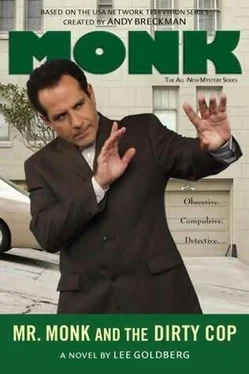


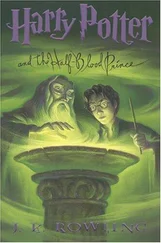
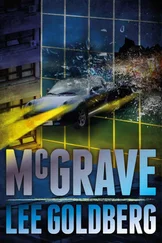
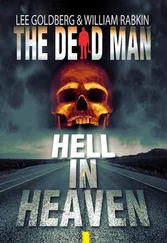

![О Генри - Фараон и хорал [The Cop and the Anthem]](/books/415669/o-genri-faraon-i-horal-the-cop-and-the-anthem-thumb.webp)




